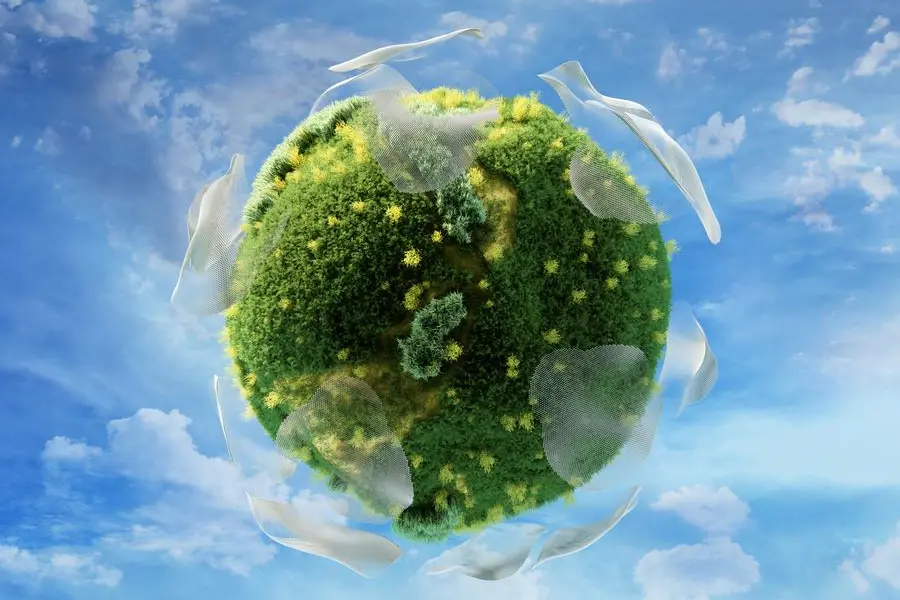PHOTO
- Respondents demonstrate higher confidence in regional governments as positive changemakers, diverging from global perceptions.
- Clean Water & Sanitation (Goal 6), Quality Education (Goal 4), and Good Health and Well-being (Goal 3) rank among the highest priorities for younger populations.
- Report nods to a higher level of Middle East youth engagement on the SDGs and a critical opportunity to enhance youth involvement in SDG-related initiatives, programmes and policies.
Dubai, UAE – Middle East findings of PwC's second Global Youth Outlook reveal that regional youth are eager to lead in advancing the United Nations Sustainable Development Goals (SDGs), showing higher awareness and engagement than their global peers. Nearly 34% of Middle East respondents are extremely or very familiar with the SDGs, compared to 23% globally, highlighting a key opportunity to enhance youth involvement in relevant programmes and policy making.
The Middle East findings capture the views, ambitions, and engagement of approximately 810 children and young adults between the ages of 10 and 30 from eight countries in the region. Their unique perspectives, challenges, and aspirations are crucial in shaping the policies and initiatives for sustainable development in the Middle East. The report underscores the pivotal role of today’s younger generation in building a better future for the people and planet.
“Today’s youth are tomorrow’s leaders. Their involvement in shaping sustainable development is of imperative value,” says Rami Nazer, Partner, EMEA Government & Public Services Leader, PwC Middle East, said. “Middle Eastern youths have a uniquely vested interest in bringing the ambitious SDGs to life. Our report clearly shows their priorities and apprehensions, pointing to a massive opportunity for policymakers, NGOs, businesses and community initiatives to deeply engage and empower them as stewards of the future world. By prioritising and promoting youth involvement, the Middle East can meaningfully lead the 2030 Agenda for Sustainable Development.”
Regional respondents rank Clean Water and Sanitation (SDG 6) among their highest priorities, echoing a pressing reality as five of the world’s most water-stressed countries are in the Middle East. This is closely followed by Quality Education (SDG 4) and Good Health and Wellbeing (SDG 3). Contrastingly, regional respondents prioritise Industry, Innovation and Infrastructure (SDG 9) and Peace and Justice (SDG 16) more than the global average, reflecting a desire for peace amid geopolitical unrest and innovation-powered economic growth.
The familiarity of Middle Eastern youth with SDGs is attributed mainly to awareness and education initiatives launched by governments across the region. Strategic roadmaps and initiatives, such as the UAE Youth Advisory Council on SDGs under the UAE National Committee on Sustainable Development Goals and Saudi Arabia’s Vision 2030 agenda, prioritise citizen engagement, well-being and sustainable development, instilling strong confidence in leadership. 65% of regional respondents place considerable faith in governments as positive changemakers, in stark contrast to global findings, where only 38% of respondents perceive governments as doing enough for people and the planet.
The report shows significant appreciation of government efforts to protect the environment and safeguard public interest, among youth as to the role of government, with community (53%) and business (50%) also playing a vital role. On the other hand, only 45% of youth consider non-government and international organisations to be driving enough change. This indicates a valuable opportunity for NGOs and IOs to engage younger populations in meaningful initiatives and programmes.
Extending beyond above-average awareness, youth in the Middle East are also reported to be more active participants of SDG initiatives they consider meaningful compared with their global peers. The “action gap” – the difference between the importance placed on SDGs and youth’s actual engagement – is narrower in the region. This is in part due to region-wide youth empowerment programmes that engage them in development projects, policymaking and ambassador programmes that galvanise participation.
The strategic integration of the SDGs in government roadmaps, paired with region-wide youth engagement programmes and initiatives, has resulted in high levels of awareness, participation, and organisational confidence. The report emphasises collaboration and collective ownership as critical factors to enabling sustainable and equitable social and economic development, paving the way for a better future.
Click here to download the full report.
-Ends-
About PwC
At PwC, our purpose is to build trust in society and solve important problems. We’re a network of firms in 151 countries with nearly 364,000 people who are committed to delivering quality in assurance, advisory and tax services. Find out more and tell us what matters to you by visiting us at www.pwc.com.
Established in the Middle East for over 40 years, PwC Middle East has 30 offices across 12 countries in the region with around 11,000 people. (www.pwc.com/me).
PwC refers to the PwC network and/or one or more of its member firms, each of which is a separate legal entity. Please see www.pwc.com/structure for further details.
© 2024 PwC. All rights reserved.
Contact:
Sima Samimi | sima.s.samimi@pwc.com | +971 547933522
More details:
https://www.pwc.com/m1/en/publications/middle-east-youth-outlook-2024.html
@PwC_Middle_East on LinkedIn and Twitter




















